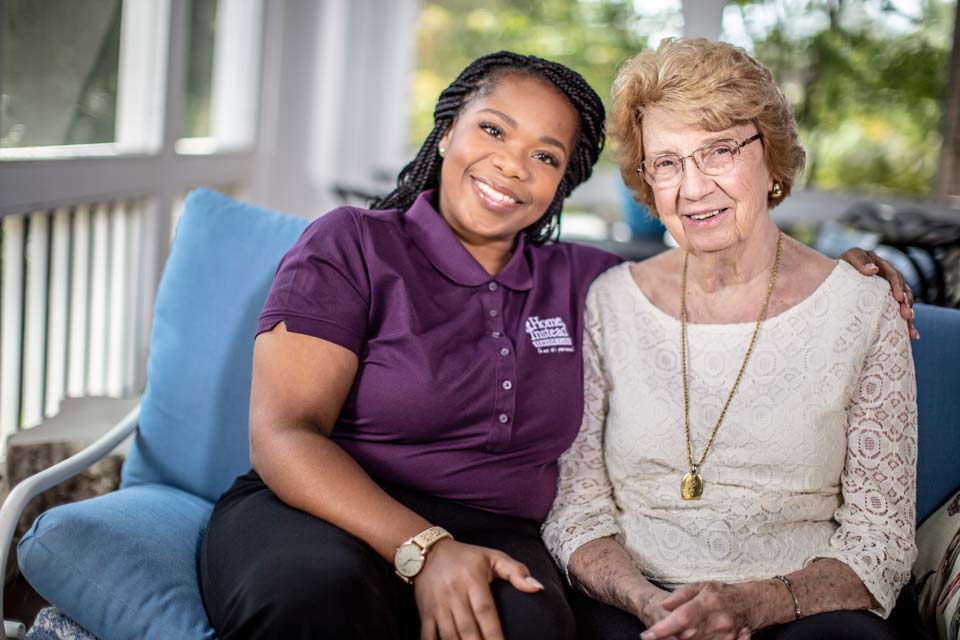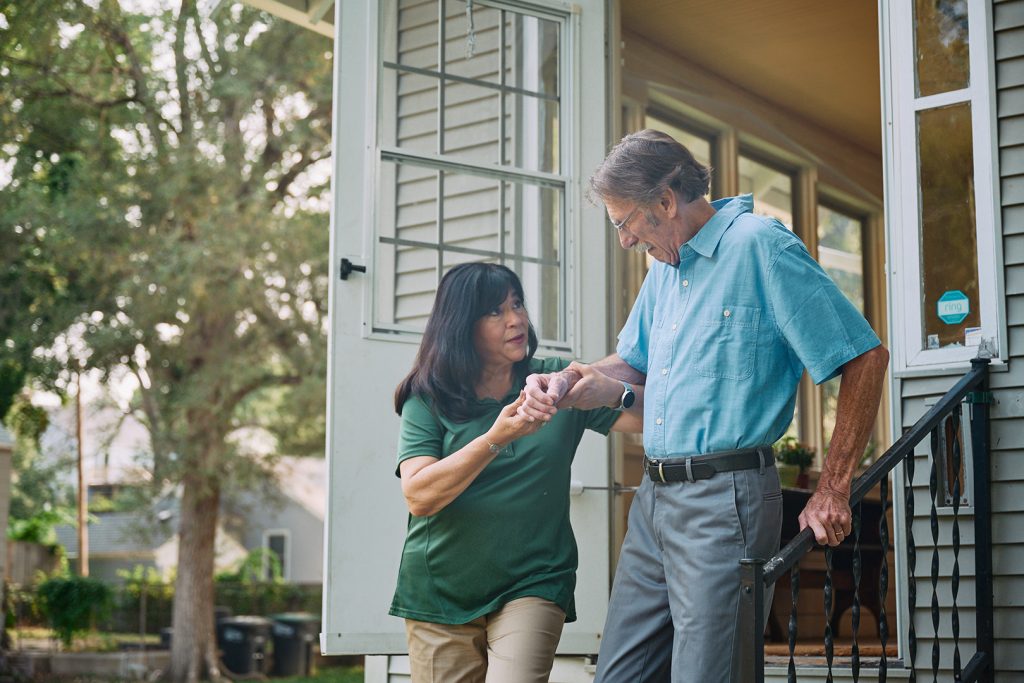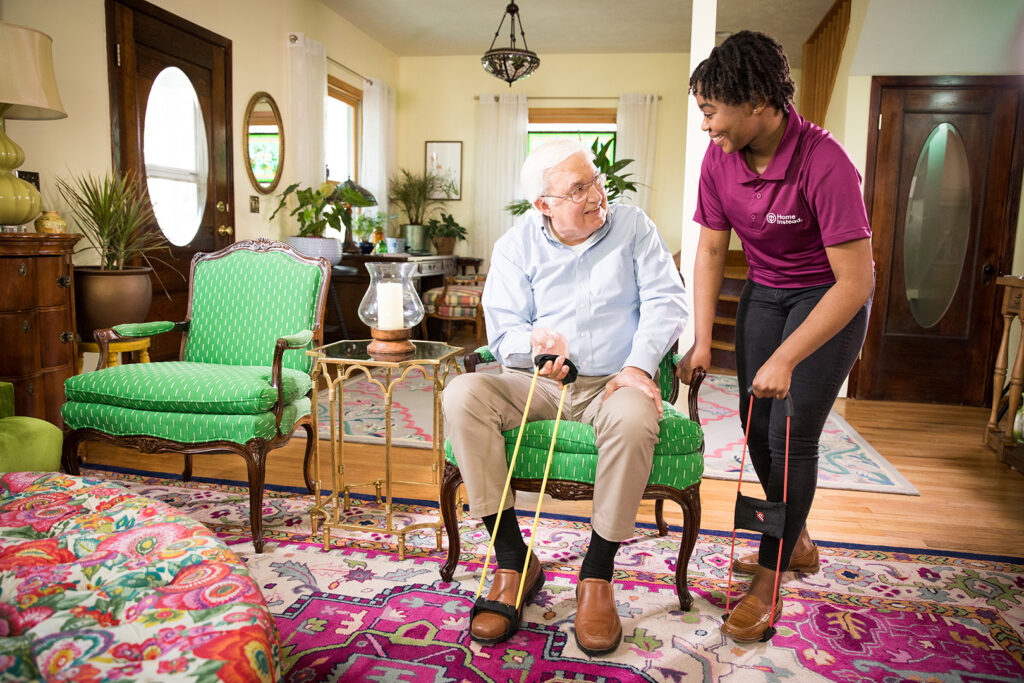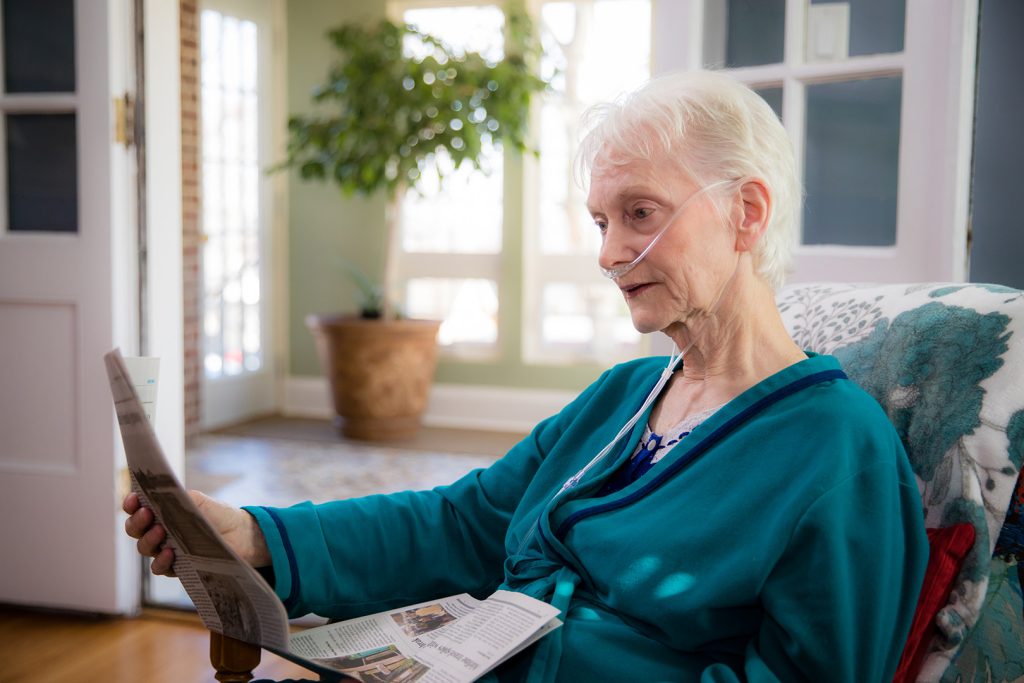Who will care for Mom?
Aging population and high demand fuel the growth for seniors’ caregiving services
Toronto, January 13, 2009 – For the first time in history, it would seem that Canadian adults now have more parents than they do children. One implication of this is that caregiving for seniors will be a high-growth occupation in coming years. Despite the depressed economy, all indications are that the need for caregiving for seniors will only increase in the future. It is already huge.
A newly released Statistics Canada study on eldercare says that some 2.7 million Canadians aged 45 and over were providing care for elderly family members or friends in 2007, which was up from 2 million in 2002. Most of these caregivers were women, and more than half of them were working. Thus, these people need help. Professional caregivers can provide it.
“The needs of seniors drive the demand for our services, which in turn, creates more caregiving jobs,” said Bruce Mahony of Home Instead Senior Care. “Surveys consistently show that seniors want to remain at home. As aging occurs, staying at home without help can become more difficult, which is why many older adults need caregiving assistance. Our caregivers don’t just care for seniors, but also care about seniors, many of whom are suffering from loneliness, depression and anxiety.”
Home Instead Senior Care is an international organization whose professional caregivers go into the homes of seniors to help them with such needs as companionship, meal preparation, light housekeeping, medication reminders, errands, palliative care and shopping. It has 21 locations across Canada, and employs about 2,500 caregivers from coast to coast.
The fact that Canadians are living longer and the population is aging propels the need for caregiving for seniors. What’s more, the first Boomers will turn 65 in 2011 and will soon need caregiving services for themselves.
“The potential for the caregiving industry is absolutely huge,” says Dr. Amy D’Aprix, Founder and President of The Caregivers’ Coach, and an expert on aging, caregiving, palliative care and retirement issues. “The non-medical, home care business is going to explode. Boomers come from a culture of independent choice and freedom, and as they get older, they will want to maintain that for themselves. Hiring an outside professional caregiver will let them do that as they age. Boomers already want these services for their own parents.” D’Aprix says an increasing number
of family caregivers are stressed out caring for aging parents, and that professional caregivers provide a “partnership” with the family in need.
“The goal is better care for seniors and less stress for the family,” she said. “Professional caregivers fill three needs – allowing seniors to remain independent in their home, providing emotional support, and providing family support.
The advantages of elderly care at home include (home helper services):
- Direct cost saving – A visiting nurse, home health aide, or personal and home care aide are all cheaper than a senior staying in a seniors’ residence or a long-term care facility.
- Convenience – It’s much more convenient to leave a hospital sooner when all a senior might need is assistance with their daily activities.
- Quality of life – The senior still lives in the comfort of their own home.
The advantages of a career in caregiving are that:
- The job is a viable option for those taking care of their own families, or for individuals who are looking for a second job in homecare in Toronto.
- It is a flexible career since you can do it on a full-time or part-time basis.
- The demand for caregivers will be high for many years to come.
- Education requirements are not high, so it may appeal to someone who is new to the country or to one who wants to put off their post-secondary education for the time being.
A 2002 Statistics Canada study called Balancing Career and Care said that more than 1.7 million Canadian adults aged 45 to 64 were providing informal care to almost 2.3 million seniors with long-term disabilities or physical limitations. Of those caregivers, most were employed and many felt they were being pulled in two directions. Another Statistics Canada study called the General Social Survey, which is from the same year, said that 2.6 million people between the ages of 45 and 64 had children under 25 living with them, and that 27% of those people – or 712,000 – were also performing some type of elder care for aging relatives. This is the so-called ‘sandwich generation.’
The history of healthcare in Canada over the past three decades demonstrates the obvious need and subsequent growth for home care services. In 1970, the province of Ontario first established a publicly funded home care program, and by 1988, every province and territory in Canada had done the same. According to the Canadian Home Care Association, the number of Canadians receiving home care benefits almost doubled from 1995 to 2006, and today there are an estimated one million Canadians receiving home care services.
In 2002, the Romanow Report examined Canada’s healthcare system, and described home care as the next essential service and “one of the fastest growing components of health care” in the country. Two years later, the Romanow Report’s 10-Year Plan to Strengthen Health Care said that “home care is an essential part of modern, integrated and patient-centred health care.”
Jim Beck, who is Director of Public Affairs at Home Instead Senior Care, recently spoke on the State of Aging in Canada at the Summit on the Mature Work Force. He observed that:
- Worker to retiree ratios will be cut in half.
- In the next 20 years, Canadians older than 65 will increase from one in ten to one in four.
- The needs of older citizens will shift medical care from treating communicable diseases to providing chronic care for the old.
- Three- and four-generation families will become the norm.
- The cost of caring for an older population will place enormous pressure on governments.
- Present senior care systems will be overwhelmed, and the family will bear the burden.
About 90 percent of Home Instead Senior Care caregivers work part-time, and while no formal education is required, the company offers a multi-phased, safety and caregiving education program. This involves case studies, senior illness information, stimulating activities, nutritional recipes, and tips for coping with stress, all of which are followed by testing. In addition, the company offers an industry-leading Alzheimer’s training program to caregivers. The Alzheimer’s training program is the first of its kind in Canada for non-medical caregivers.
“Our primary mission is to keep seniors independent for as long as possible, and that means making sure that caregivers have the tools they need to provide seniors with the highest quality of care,” said HISC owner. “We offer resources and experiences that will benefit our employees in many future endeavors they might choose.”
Home Instead Senior Care has developed a caregiver career self-assessment to help people gauge whether caregiving is a good career option for them. Anyone is fee to try the self-assessment
Do you have what it takes?
Home Instead Senior Care and Dr. Amy D’Aprix have prepared a list of questions to ask when searching for a professional caregiver:
- Have they been adequately trained as a caregiver? Dealing with people who suffer from such illnesses as dementia or Alzheimer’s is very demanding.
- Are they experienced?
- What are their limitations? Some caregivers, such as independents, may not be willing to perform certain functions on behalf of seniors in need.
- Can they pass a background check?
- What about backup? If the caregiver is sick, it is important to know that another professional will cover for them.
About Home Instead Senior Care
In Canada, Home Instead Senior Care has 21 independently owned locations in seven provinces. There are 11 in Ontario — eight in the Greater Toronto Area, as well as in Ottawa, Peterborough and Waterloo. Five are in B. C. — Kelowna, Port Coquitlam, Vancouver, Victoria and White Rock. There are also locations in Winnipeg, Saskatoon, Edmonton, Halifax and Charlottetown. Services include companionship, meal preparation, medication reminders, light housekeeping, and escorts for errands and shopping. Home Instead Senior Care services are available at home or in care facilities from a few hours per week up to 24 hours a day, seven days a week.
Home Instead Senior Care prepares its caregivers to look for signs of abuse in the elderly and provides caregiver training that is unmatched in the industry. Recently, Home Instead Senior Care received the Best Employer Award for 50-Plus Canadians from The Workplace Institute. Home Instead Senior Care also offers an Alzheimer’s training program to its caregivers; this training program is the first of its kind for non-medical caregivers.
Home Instead Senior Care is the world’s largest provider of non-medical home care and companionship services for seniors with more than 800 independently-owned-and-operated locations in Canada, the U.S., Japan, Portugal, Australia, Ireland, New Zealand, the U. K., Spain, South Korea, Austria, Finland and Taiwan. Click here for more information about the company and its owners.







